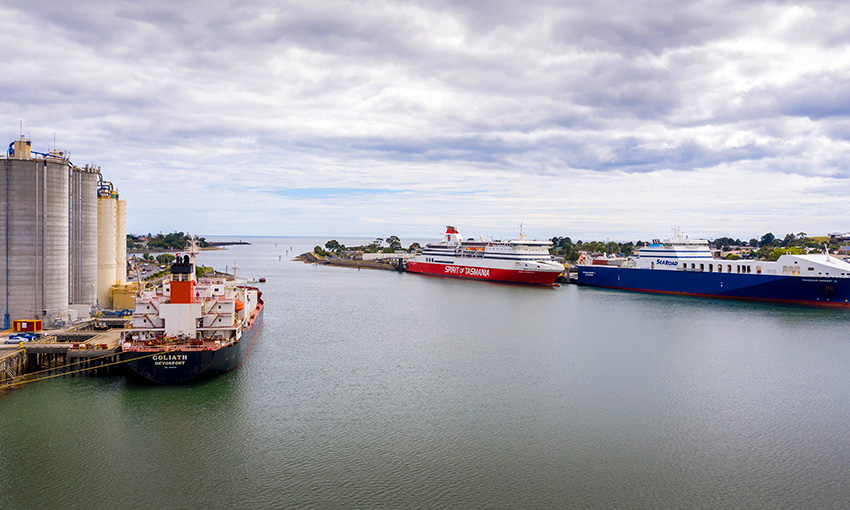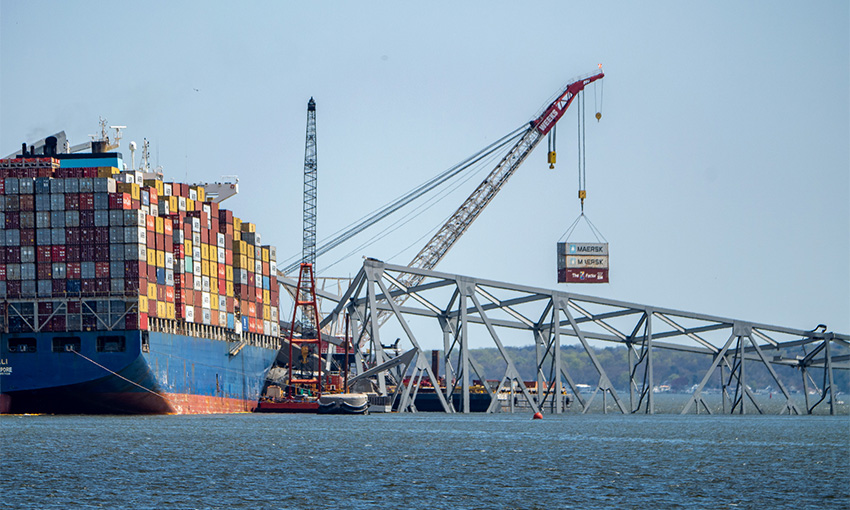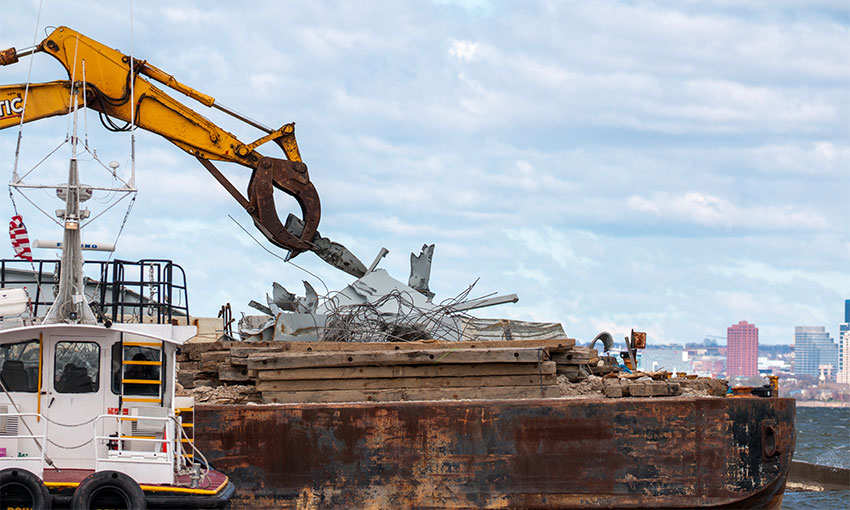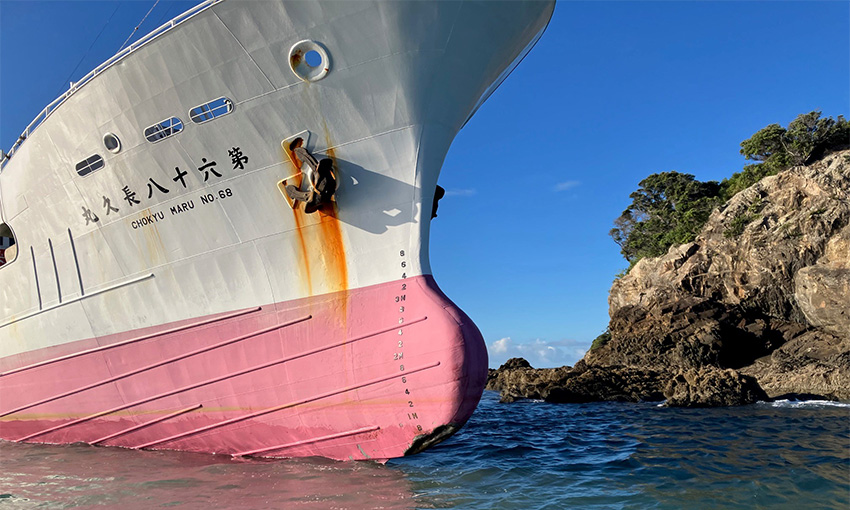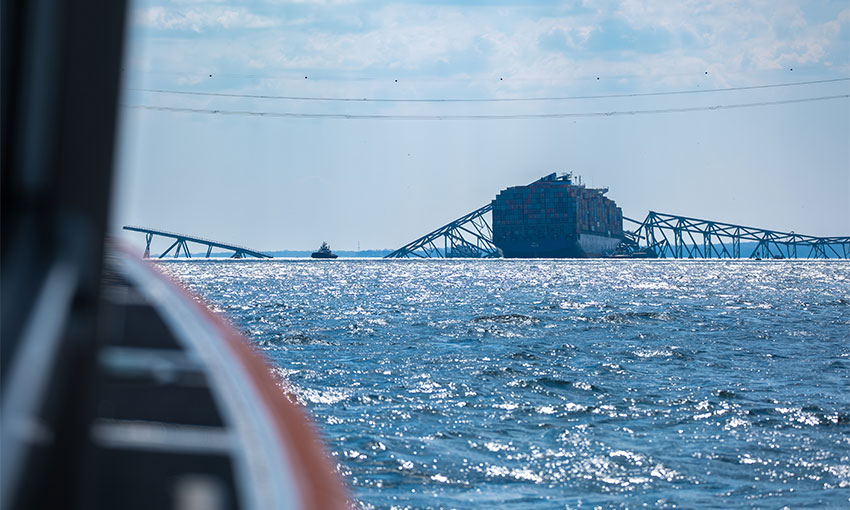OIL-spill response and salvage operations are ongoing at the Port of Devonport after the 28 January elision between the cement carrier Goliath and two berthed tugs.
TasPorts has been progressively re-instating commercial shipping activities at the port.
TasPorts chief operating officer Stephen Casey said another milestone was reached on Monday with cement carrier Kondili arriving at Devonport 1 West Berth in support of the ongoing operations of Cement Australia.
“TasPorts is working hard to minimise disruption to customers as a result of the incident and the arrival of the Kondili is testament to this and enables the resumption of cement export from Tasmania to mainland Australia,” Mr Casey said.
“Consideration of the ongoing integrity of the floating oil spill boom continues to be vital in assessing and approving all commercial vessel movements in the river. The arrival of the Kondili was carefully assessed and planned by TasPorts and the vessel master to ensure the integrity of the boom was maintained.”
Mr Casey said this planning ensured oil-spill response activates were undisturbed and environmental protection practices were maintained.
“Any breach of the boom by disruption of the water by moving vessels could significantly impact the ongoing oil spill response,” he said.
“We would also like to thank the ongoing support of Bass Strait shippers, TT-Line and SeaRoad, for their diligence and cooperation as adjustments to daily sailings have been made to ensure critical response activities have continued 24/7 over the last 10 days.”
Mr Casey said commercial berths to the south of the incident site remain closed.
“This is being regularly reviewed by the harbour master as we continue to manage oil spill response and salvage activities and ensure environmental and maritime safety in the Mersey River,” he said.
“TasPorts and the EPA are continuing to closely monitor all shipping movements in the Mersey, until the successful recovery of the two tugs from the river can be completed, at which point the containment booms can be appropriately removed.”
Tasmanian environment minister Roger Jaensch commended the agencies that have been working together to respond to the oil spill.
“The Environment Protection Authority, TasPorts, BridgePro, Tasmanian Divers Group, Marine and Safety Tasmania, the Australian Maritime Safety Authority and the Australian Transport Safety Bureau have all have worked in unison since a commercial vessel collided with two tugboats on January 28, causing fuel and oil to spill into the Mersey River,” he said.
“The incident response team, led by the EPA and TasPorts, has made significant progress in the clean-up effort.”
Mr Jaensch said an estimated 65,000 litres of spillage have been removed from the Mersey River so far. Divers have sealed sections of the submerged vessels to prevent any further spills.
“The timely, co-ordinated efforts of everyone involved helped to prevent the oil spill from washing up on nearby beaches,” he said.
“Important learnings from this incident will be used to refine Tasmania’s response to oil spill emergencies and implementation of the Marine-related Incidents (MARPOL Implementation) Act 2020 going forward.”

